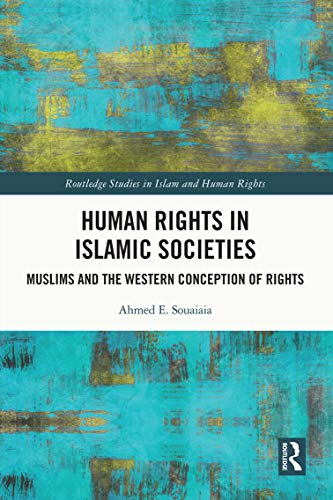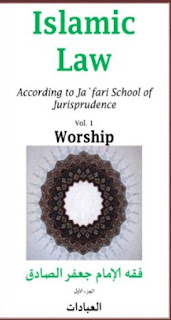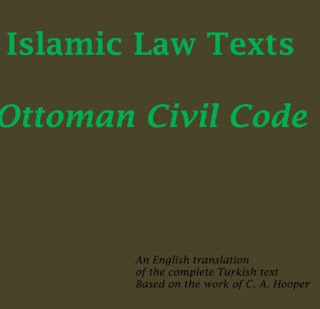BOOK VII. GIFT
Ottoman Majalla
BOOK VII. GIFT
833. A gift consists of bestowing the ownership of property upon some other person without receiving anything in return. The person giving is called the property bestowed by way of gift; and the person who receives such property is called the recipient.
834. A present is property brought or sent to someone by way of gratification.
835. Alms consists of property given for some charitable object.
836. Allowing another person to eat and drink without receiving anything in exchange is called gratuitous feeding.
CHAPTER I. MATTERS RELATING TO THE CONTRACT OF GIFT
SECTION I. FUNDAMENTAL BASIS AND RECEIPT OF A GIFT
837. A contract of gift is concluded by offer and acceptance. Upon taking delivery the contract becomes complete.
838. Offer, as regards donation, consists of the employment of words importing the gratuitous transfer of ownership in property, such as " I have given for nothing": "I have given by way of gift": "I have given as a present". An offer of a gift is also made by the use of expressions importing the intention of transferring ownership in property gratuitously, as where a husband hands a pair of earrings or some other jewel to his wife, telling her to take such thing and wear it.
839. A contract of gift may also be concluded by conduct.
840 The dispatch and receipt of a gift and of alms are tantamount to verbal offer and acceptance.
841. Receipt in the case of gift is like acceptance in the case of sale. Consequently, if the donor makes his offer by stating that he has given the given by way of gift or by using some similar expression, and the recipient, without signifying his acceptance, merely takes delivery of the thing given, at the time it was offered, the gift thereupon becomes complete.
842. The recipient may not take delivery of the thing given by way of if it, unless he has received the permission, express or implied, of the donor.
843. The donor, by his offer, is considered by implication to have authorized the recipient to take delivery of the thing given. There is an express authority, however, when the donor makes use of formal words, as when he states that he has given something to someone and invites that person to take it, in the event of the gift being present when the parties meet, or that he has given something to someone and invites him to go and get it, should the gift itself not be there when the parties meet.
844. When the donor has given his express authority, the recipient may take delivery of the property bestowed by way of gift either at the meeting place of the parties, or after they have separated. If the authority is merely implied, however, it is only valid so long as the parties are present together. After they have separated, the recipient may not validly take delivery of such property. Example:- The donor states that he has bestowed a certain by way of gift. The recipient may validly take delivery of the thing given so long as the parties remain present together, but he may not do so once they have separated. If the donor states that he has made a gift of something belonging to him which is in a certain place, without requesting the recipient to go and get it, the recipient may not validly go to the place where such thing is and take delivery thereof.
845. A purchaser may make a valid gift to a third party of a thing he has purchased, even before having taken delivery thereof from the vendor.
846. A gift made by the owner of a thing to a person who is already in possession thereof is complete by reason of the mere acceptance of the recipient, without the necessity of any further delivery.
847. If a person to whom money is due makes a gift of such money to the person from whom the money is due, or releases the debtor from payment thereof, such gift or release is valid, and the debt is forthwith extinguished, provided that the debtor does not decline to agree thereto.
848. Should a person to whom money is due make a gift of the sum due to him to some person other than the person who owes him such money, expressly authorizing the recipient to take payment from the latter, the gift is complete as soon as the recipient has received payment.
849. The death of the donor or the recipient before the transfer of the gift makes such gift null and void.
850. In the case of gift made by a father to a son who is of age, that is, who is of sound mind and who has arrived at the age of puberty, the thing bestowed by way of gift must be delivered by the donor, and delivery must be taken thereof by the recipient.
851. A gift made to a minor by his tutor or by the person in charge of his upbringing and education, of such person's property is complete by reason only of the offer of the donor, and the minor becomes absolute owner thereof without any need for taking delivery, whether the thing given is in the possession of the donor, or in the safe keeping of some third person.
852. A gift made by a person to a child is complete when the tutor or person in charge of the upbringing or education of the child takes delivery of such gift.
853. If the recipient is a minor who is of perfect understanding, the gift becomes complete when the minor himself takes delivery thereof, even though he has a tutor.
854. A gift which is to take effect in the future is invalid. Example:- A donor states that he has made a gift of a certain thing with effect as from the first of next month. The gift is invalid.
855. The donor may validly demand some compensation in return for his gift. In such a case the contract is valid and the condition binding upon the recipient. Examples:- (1). The donor makes a condition that the recipient shall give him some particular thing in return, or that he shall pay his debt amounting to a certain sum. If the recipient fulfils the condition the gift becomes irrevocable; if not, the donor has the right of revoking it. (2). A person makes a gift of his real property held in absolute ownership upon condition that the recipient shall make provision for his maintenance for the whole of his life time. If such person changes his mind, he cannot revoke his gift and claim the return of such property so long as the recipient continues to comply with the condition.
SECTION II. CONDITIONS ATTACHING TO A GIFT
856. The thing bestowed by way of gift must be in existence at the time the gift is made. Consequently, if a gift is made of grapes to be produced in a vineyard, or the foal of amre not yet born, such gift is invalid.
857. The thing bestowed by way of gift must be the property of the donor. Consequently, if a person makes a gift to some other person of property which is not his own, such gift is invalid. If the owner, however, thereafter ratifies the gift, such gift is valid.
858. The thing bestowed by way of gift must be clearly ascertained and defined. Consequently, if the donor makes a gift of a certain portion of his property without specifying which, or if he makes a gift of a horse by telling the recipient that he may take whichever he likes of two horses, and the recipient at the time the gift is made states which one of the two he selects, such gift is valid. If the recipient selects the one he wants after the meeting at which the gift has been made, however, such selection is invalid.
859. The donor must be of sound mind and must have arrived at the age of puberty. Consequently, a gift made by a minor, or a madman, or an imbecile is invalid. A gift however, may validly be bestowed upon such person.
860. The donor must assent to the gift. Consequently, a gift made as a result of force or constraint in invalid.
CHAPTER II. FUNDAMENTAL RULES RELATING TO GIFT
SECTION I. REVOCATION OF A GIFT
861. The recipient becomes owner of the property bestowed by way of gift upon taking delivery thereof.
862. The donor may revoke the gift of his own accord before delivery thereof is taken.
863. If the donor forbids the recipient to take delivery after making an offer of the property, he revokes the gift.
864. The donor may revoke the gift or present after delivery has been taken, provided the recipient agrees there to. If the recipient does not agree, the owner may apply to the Court, and the Court may cancel the gift in the absence of any prohibition contained in the following Articles, but not otherwise.
865. If the donor takes back the gift after delivery has been taken without the assent of the recipient, or of an order of the Court, he becomes a person wrongfully appropriating property; and if the gift is destroyed or lost while in his possession, he must make good the loss.
866. If a person makes a gift of anything to his ascendants or descendants, or to his brother, sister, or to their children or to his uncle and aunt, he may not revoke such gift.
867. If the husband or wife, while the marriage stands, gives and delivers something to the other, he or she can no longer go back from it.
868. If something is given on account of the gift and is received by the donor, the donor may not revoke such gift. Consequently, If something is given to the donor on account of the gift, whether by the recipient or by some other person, and the donor takes delivery thereof, he may not revoke such gift.
869. In cases where something is added to and becomes part of the gift, as where the property bestowed by way of gift consists of land, and the person in whose favor the gift is made erects buildings or plants trees thereon; or where the gift consists of a lean animal and the person in whose favor the gift is made fattens such animal; or where the gift is altered in such a way that its name is changed, as where corn is ground into flour, the gift may not validly be revoked. But an increase which is not part of the gift in no way prevents revocation. Consequently, if a mare which is bestowed by way of gift to a certain person becomes in foal, the gift may not be revoked. But after the mare has foaled, the gift any be revoked. In that case the foal belongs to the person in whose favor the gift has been made.
870. If the person in whose favor the gift has been made divests himself of the ownership therein by selling such gift or making a gift thereof, and delivering the same, the donor has no right of revoking the gift.
871. If the gift has been destroyed while in the possession of the person in whose favor the gift has been made, such gift may not be revoked.
872. In the event of death of either the donor or the person in whose favor the gift has been made, the gift may not be revoked. Consequently, if the person in whose favor the gift has been made dies, the donor may not revoke the gift; and if the donor dies his heirs cannot claim the return of the gift.
873. If the creditor makes a gift of a sum owning to him by a person who is indebted to him, he can in no case revoke the gift. (See Article 51 and 848.)
874. A gift made by way of alms cannot be revoked once delivery thereof has been taken.
875. If a person allows some other person to consume certain food, the latter, after receiving it, may not deal with it in a manner indicative of a right of ownership, as by selling it, or by making a gift of it to some third person. He may, however, eat such food, and the owner cannot later claim the value thereof. Example:- A eats a quantity of grapes in a vineyard with the permission of the owner thereof. The owner may not later claim the value of such grapes.
876. Presents made on the occasion of circumcision or marriage ceremonies belong to those persons for whom they were intended by the owners thereof, whether for the child, or the bride, or the father, or the mother. If they fail to state for whom they were brought and the point cannot be settled by inquiry from them, the question will be dealt with in accordance with local custom.
SECTION II. GIFTS MADE DURING THE COURSE OF A MORTAL SICKNESS
877. If a person who is without an heir makes a gift of the whole of his possession to some other person during the course of a mortal sickness and delivers the same, such gift is valid, and the Treasury has no right of interfering with the estate after his decease.
878. If a husband who has no heir apart from his wife, or a wife who has no heir other than her husband, makes a gift of the whole of his or her possessions to the wife or husband respectively during the course of a mortal sickness and delivers the same, such gift is valid, and the Treasury has no right of interfering with the estate of either of them after their decease.
879. If any person makes a gift to one of his heirs during the course of a mortal sickness, and then dies, such gift is not valid unless ratified by the other heirs. If the gift, however, is made and delivered to some person other than an heir, and the gift does not exceed one third of the estate, such gift is valid, If it exceeds one third, however, and the heirs do not ratify the gift, such gift is valid in respect to one third of the estate, and the person in whose favor the gift is made must return the balance.
880. If a person whose estate is overwhelmed by debts makes a gift of his property during the course of a mortal sickness to his heir, or to some other person, and delivers the same and then dies, the creditors may disregard the gift and may divide such property between them in proportion to their claims.





0 comments:
Post a Comment